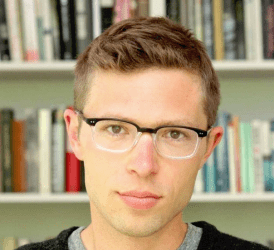How Plagiarism Lingers for Authors

Bestselling Korean author Shin Kyung-sook released a new novel today. Entitled I’ve Gone to Father, the book seems to be a spiritual follow up to her best-selling 2008 novel Please Look After Mom, as both books deal with the struggles of adult children with aging parents.
However, if you look at the news coverage of the new novel, much of it is not about an anticipated new work, but about a six-year-old plagiarism scandal involving her.
In June 2015, it was revealed that a short story Shin had written entitled Legend, published in 1994, contained plagiarized passages from the Korean translation of a 1961 story entitled Patriotism written by Japanese writer Yukio Mishima.
The story was major news both in Korea and internationally. Shin was, and in many ways still is, one of the most respected novelists in South Korea. Shin quickly apologized for the plagiarism, saying that she could not remember ever reading Patriotism, but could not dispute nor deny the evidence presented.
“I offer my sincere apology to those literary figures who raised the issue, to all my acquaintances, and especially to readers who have read my novels. It’s all my fault; I haven’t been careful enough…”
Shin Kyung-sook
Her publisher quickly removed the short story collection that contained Legend from sale.
Six years later, despite no new allegations of plagiarism be lobbed against her, Shin continues to write in the shadow of that scandal. However, is it fair that a plagiarism that took place more than 25 years ago and discovered nearly 6 years ago still rules her career?
Right or wrong, it’s not uncommon and it’s not something that’s unique to South Korea.
Plagiarism as the Permanent Stain

When we discuss plagiarism among authors and journalists, we often refer to it as a “career death penalty.” However, as we’ve seen time and again, that is far from true.
Many plagiarists, such as Fareed Zakaria, Margaret Wente and Jane Goodall, suffer nearly no consequences. Others, have their careers temporarily sidetracked but quickly move past it. Still, some do suffer permanent consequences from it such as Jayson Blair and Jonah Lehrer.
However, for all of them, plagiarism remains something of a cloud looming over them. Even in 2021, now-President Joe Biden has the name “plagiarist” flung at him even though despite the initial scandal taking place in 1987 and the most significant allegations happening when he was in law school years before that.
Though he faced weak allegations in June 2019, those served more to bring up the 1987 allegations than address the alleged 2019 copying.
Plagiarism, even if it doesn’t impact one’s career significantly, is a permanent stain on that person and, for some at least, everything they do after will be colored through that prism.
The problem is that many great people have also committed plagiarism. This includes many authors, musicians, leaders and scientists. But, while we often forgive many transgressions, plagiarism seems to be one that one that many can get past but not leave behind.
To that end, Shin is not much different. She continued her writing career in 2019 with the publication of The River Never Knows What’s Loaded on the Ship (and she repeated her apologies then) but this represents her first major release.
However, no matter how successful her new book becomes, the cloud of plagiarism won’t leave her behind. Whether that’s right or wrong is a personal decision, but it doesn’t change that, factually, it’s the way things will be for her.
Bottom Line
One of the reasons that stories like Shin’s become such big news is that, when a well-known and beloved author is accused of plagiarism, to fans and other writers, it feels like a betrayal.
People who invested time, money and emotional energy in an author’s work feel betrayed. That’s true even if, as with this case, the plagiarism took place more than 20 years before it was discovered.
To many, Shin’s career will always be marred by plagiarism no matter how isolated the incident is, no matter how long ago it was, no matter what she has done since.
In some cases, such a response is fair and warranted. Some plagiarism is so egregious that it should never be forgotten. However, in this case, it doesn’t feel as true.
With no additional allegations coming forth (despite six years to do so and, most likely, several investigations) and the plagiarism taking place well before her greatest works were published, it feels as if she should be allowed to put this in the past.
Unfortunately, history has shown us that is unlikely to happen. Once a plagiarist, always a plagiarist. Even though careers may recover, the reputation rarely does.
Want to Reuse or Republish this Content?
If you want to feature this article in your site, classroom or elsewhere, just let us know! We usually grant permission within 24 hours.
